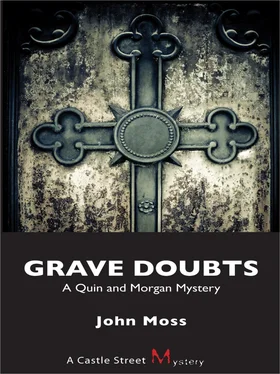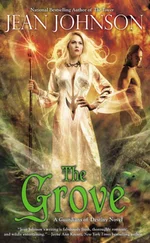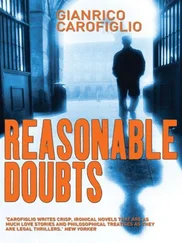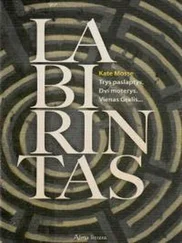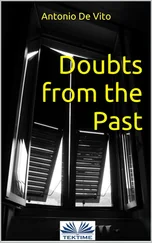John Moss - Grave doubts
Здесь есть возможность читать онлайн «John Moss - Grave doubts» весь текст электронной книги совершенно бесплатно (целиком полную версию без сокращений). В некоторых случаях можно слушать аудио, скачать через торрент в формате fb2 и присутствует краткое содержание. Жанр: Криминальный детектив, на английском языке. Описание произведения, (предисловие) а так же отзывы посетителей доступны на портале библиотеки ЛибКат.
- Название:Grave doubts
- Автор:
- Жанр:
- Год:неизвестен
- ISBN:нет данных
- Рейтинг книги:4 / 5. Голосов: 1
-
Избранное:Добавить в избранное
- Отзывы:
-
Ваша оценка:
- 80
- 1
- 2
- 3
- 4
- 5
Grave doubts: краткое содержание, описание и аннотация
Предлагаем к чтению аннотацию, описание, краткое содержание или предисловие (зависит от того, что написал сам автор книги «Grave doubts»). Если вы не нашли необходимую информацию о книге — напишите в комментариях, мы постараемся отыскать её.
Grave doubts — читать онлайн бесплатно полную книгу (весь текст) целиком
Ниже представлен текст книги, разбитый по страницам. Система сохранения места последней прочитанной страницы, позволяет с удобством читать онлайн бесплатно книгу «Grave doubts», без необходимости каждый раз заново искать на чём Вы остановились. Поставьте закладку, и сможете в любой момент перейти на страницу, на которой закончили чтение.
Интервал:
Закладка:
“And you think Sister Marie Celeste looks like Simonetta?” Alexander demanded in a quiet but authoritative voice
“Only in the first panel.”
Miranda interjected. “Who is Simonetta?”
“The beloved of Giuliano, brother of Lorenzo Medici… Lorenzo the Magnificent,” said Rachel.
“He wasn’t modest, was he?” Miranda observed.
“Who?”
“Magnificent Lorenzo. Who was Simonetta in her own right?”
“The model for Botticelli’s Birth of Venus, somewhat idealized, I would think,” said Alexander.
“She’s lovely, fragile, and vacuous,” said Rachel. “Appropriate for Venus arising, newborn but fully mature, generated from the cast-off testicles of a truculent god.”
“Uranus, I believe, at the hands of his son, Cronus the Titan.” Alexander spoke as if he were merely providing a reminder for a story he assumed everyone knew.
Miranda was astonished at the level of discourse. She had a general knowledge of art, gleaned mostly from reading Christmas gift-books like Sister Wendy’s The Story of Painting, but these two seemed comfortable with fifteenth-century aesthetics as a topic of casual conversation. She was especially surprised by Alexander. She knew Rachel had spent a summer studying in Florence, but how had Alexander managed to assimilate such knowledge into his capacious, undisciplined mind? No, she thought, that’s Morgan. Alexander’s mind is large, but it is quaint and orderly. She had vague recollections of him talking about art school, long before he took up reconstruction, reclamation, renovation, authentic reproduction, and the like.
Restoration. She added that to her list: art restoration. For his project in Beausoleil, Ontario, of course, he would have to know about plaster and painting in Renaissance Italy.
“Are you listening?” Rachel said, nudging Miranda out of her quizzical reverie. “I’m talkin’ here.”
“Yeah. Botticelli, Venus.”
“Right, but I think Sister Marie’s other faces come from ‘The Allegory of Springtime’ — the Primavera.”
“Do tell us,” said Alexander Pope, like a teacher examining a prodigal student.
“Okay,” she said in a voice suggesting she was fully prepared for the occasion. “Panel two, the annunciation imminent. The face is Flora in the Primavera, strangely lusty and fearful, gazing upward at the warm wind of spring. Picture the painting in your mind. Picture the frescoes. In the third panel there are two versions of Sister Marie; on one side she’s prostrate, her face turned away like the centre of Botticelli’s Three Graces, and on the other she’s enraptured, staring up at the Virgin Mary in wonder. She’s the Grace on the left, representing ecstatic desire. The fourth panel shows the face of Venus offering silent benediction. The final panel shows Sister Marie as Flora, again, now fecund with spring, an earth nymph transformed to goddess and the most beautiful, sensual face ever painted. What better way to arise into Heaven than satiated with sex and surrounded by flowers?”
Miranda turned to Alexander. “How’d she do?”
“Excellent,” he said. “I couldn’t have done better myself.”
Miranda looked from one to the other. Despite Rachel’s demand for Miranda’s attention, possibly Rachel had meant to impress Alexander Pope with her explication and Miranda was merely a witness. Rachel and Alexander sat quietly for a moment, eying each other, perhaps also trying to assess their relative roles in the rhetorical drama.
Alexander smiled, leaned across the table, and squeezed Rachel’s hand. She turned it over and responded with a brief squeeze of her own, then withdrew it. Miranda felt excluded again, and yet was impressed with them both. Rachel, for her casual erudition, and Alexander, for his forbearance. He, after all, had been listening to an interpretation of a monumental work of art that was as close to being his own creation as if he had painted the frescoes himself. chapter fifteen
Lakeshore Road
Morgan found himself behind the wheel of a police car in the small hours of early morning, driving east along Highway 401, without being quite certain why. He had awakened from a restless sleep in a cold sweat, at first thinking the telephone had been ringing and it must be Miranda. Out of the darkness the surge of a diffuse premonition that Miranda was in danger had taken hold. He had no idea why he was driving to Port Hope instead of Beausoleil or Penetanguishene, but he knew that somehow, in his sleep, apprehension for his partner’s safety had coalesced around Alexander Pope. It was no longer a matter of murders unsolved; there was an urgency to get inside the man’s mind. Where better for that than in the man’s home, especially when Pope wasn’t there?
He knew there was a connection between these feelings of dread and the fax from London that had come through just before he left headquarters for the night. Scotland Yard was reopening their inquiry into the Renaud’s murders. Their medical examiners were convinced the cadavers under their wax veneers predated original assumptions by a number of years. Forensic identification of the bodies verified their revised findings. They wanted Morgan to suggest an alternate timeline in Shelagh Hubbard’s career. Might she have been in London earlier than previously supposed, perhaps working at Madame Renaud’s in some anonymous capacity that would have given her access to the facilities but left no records of her presence?
That seemed something more likely to be determined in London. A quick check through her file, the very same file that had been forwarded to Scotland Yard more than a month previous, suggested she had pursued an academic career on the fast track without a break between doctoral studies at Oxford, a postdoctoral fellowship at the University of London, and her appointment at the wax museum. Renaud’s had no record of her employment there before the dates indicated in her journal. Her undergraduate and masters work in Vancouver, at the University of British Columbia, combined with her relative age at each stage of her evolving career, left no time for earlier employment in any capacity whatsoever in the Chamber of Horrors. He had faxed back, suggesting the arcane procedures of post-mortem preparation might have contaminated the normal measures determining time of death.
He also suggested they switch to email and, on a hunch, he requested a scan of Madame Renaud’s employment records extending back at least ten years. There might be anomalies Scotland Yard wouldn’t see.
Drifting into a troubled sleep, he had been thinking about Shelagh Hubbard, but he woke up with Alexander Pope looming in his mind. Pope would be the key to resolving the anomalies of Shelagh Hubbard’s activities among the perpetual dead. His first thought had been to call Miranda. He couldn’t call her. She had declared with conviction that she was going to leave her cellphone at home.
“We’re going camping, Morgan. No phone — ”
“No pool, no pets.”
“You get the idea. I haven’t been inside a tent since I was a student.”
“Yeah, I knew that. I think I did.” Sometimes when she told him things, he was not sure whether he’d heard them before, or whether the cadence of her voice was so familiar it only seemed like he had.
A surprising number of trucks were competing for space on the road. A succession of eighteen wheelers roared up behind him and veered into the passing lane at the last moment. He was driving above the speed limit. He was thinking.
He tried to imagine Alexander Pope as a sinister figure — the villain in a strangely elusive drama, perhaps by Shakespeare, perhaps Hitchcock. He didn’t fit. In spite of Morgan’s apprehension about the danger inherent in Miranda’s relationship with Pope, Morgan found the man too much absorbed in his own predilections to be a proactive scoundrel. Shelagh Hubbard, in comparison, fit the bill to a T. She frightened him, even now, after death. It wasn’t the crimes; mostly, it was how he had been manipulated in a gruesome entertainment where he didn’t know the rules, where he wasn’t even sure of the game. He had been played for a fool.
Читать дальшеИнтервал:
Закладка:
Похожие книги на «Grave doubts»
Представляем Вашему вниманию похожие книги на «Grave doubts» списком для выбора. Мы отобрали схожую по названию и смыслу литературу в надежде предоставить читателям больше вариантов отыскать новые, интересные, ещё непрочитанные произведения.
Обсуждение, отзывы о книге «Grave doubts» и просто собственные мнения читателей. Оставьте ваши комментарии, напишите, что Вы думаете о произведении, его смысле или главных героях. Укажите что конкретно понравилось, а что нет, и почему Вы так считаете.
